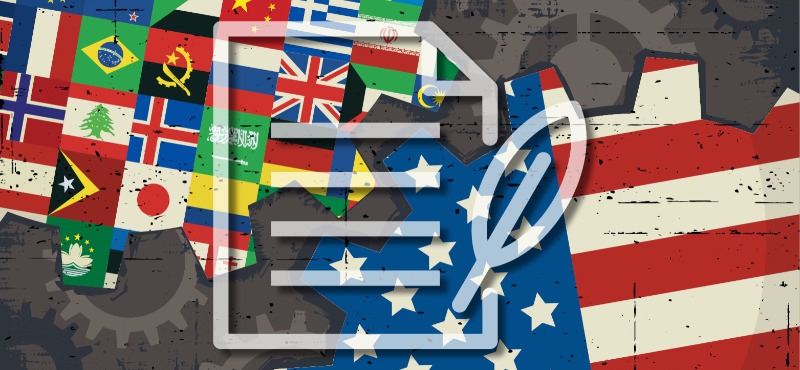Business immigration attorneys have a challenging task. Clients, typically large multinationals, have high expectations. They have an individual they would like to bring to the United States and expect that their attorney can make it happen.
The challenge arises when a company selects a candidate who does not fit one of the common visa categories. For example, the candidate might be a professional with a strong university degree, but who needs a visa in November, after the annual allotment of 65,000 new H-1B professional visas has been depleted. While the individual has industry experience, none of it is with the company’s own operations, which would be needed for the L-1 transferee visa.
In situations like this, the attorney needs to think creatively.
One category to consider, which has remained largely unchanged over the years, is the Treaty Visa. This visa is for citizens of a country that has a bilateral treaty with the U.S., authorizing its own companies to bring its citizens to the U.S. for work. The category has been in place for many years for some countries; for example, the agreement that authorizes Treaty Visas for Swiss companies has been in place since 1855.
The initial question is whether the foreign company is majority owned and controlled by citizens of the specific foreign country. For small companies, ownership can be proven by the citizenship of its ultimate owners, as documented by shareholder certificates and passports. For large companies whose shares are traded on a public exchange, ownership nationality can be implied by the country where its stock is traded. The company needs to be owned at least 50 percent by foreign citizens, under the theory that this share gives them veto power over control and management decisions.
The second issue is whether the company qualifies for one of the two subcategories that may be authorized by the bilateral agreement: the E-1 Trader and the E-2 Investor category. For E-1 Trader visas, the company needs to show that the majority of its international trade is between the home country and the United States. For the E-2 Investor visa, it needs to show that its U.S. operations were established based on a “substantial” investment. U.S. consulates generally view $100,000 as a substantial investment, so long as it was invested prior to the date of the visa application.
Once the company proves it qualifies for either the E-1 or E-2 category, it can select individuals to apply for the visas, which can be granted for five years and are extendable. The applicant must be either a manager or someone with essential skills needed for the business. For investor visas, the applicant can also be either one of the investors or the representative responsible for managing the investment.
The attorney has a number of long-term strategic issues to review. Generally, if a company can qualify for either the trader or investor category, the investor is preferable. This is because once a company has shown to be established based on foreign investment, that proof can be used for years going forward. By contrast, in the trading category, the company must confirm that the majority of its trade is with the U.S. every time it seeks a new visa for a potential employee.
While all Treaty Visa applications are handled by U.S. consulates operated by the Department of State, the specific process can vary depending on where the application is made. For example, U.S. consulates in Paris and Vancouver have established expedited processing systems by which an application can be submitted in advance of a personal interview, thereby speeding up the process. Many consulates have also instituted guidelines to reduce the size of applications and require that all documents regarding ownership and control, trade, or investment fit within 40 pages. This means that complex corporate structures may need to be consolidated within charts or diagrams that trace ownership back to the ultimate owners. Many consulates have recognized differences between large conglomerates and small companies, such as those for professional services like video production, where a $75,000 investment for hardware and software can meet the substantiality test. Some consulates have also accepted creative forms of funding, including from online platforms like Kickstarter, so long as the citizenship of the investors can be traced to qualifying individuals.
In the current period of political instability, Treaty Visas, which are based upon long-standing international agreements, are a good option for businesses to consider. They may permit companies to bring workers to the U.S. who would not qualify for other types of visas. Equally important, U.S. consular officers handle these visas with care, as they recognize that they are an important aspect of maintaining strong U.S. bilateral relationships with other nations around the world.
---------------------
Eric Fleischmann is a partner with Leete, Kosto & Wizner, LLP in Hartford, Connecticut. He represents companies with offices around the world, obtaining visas for professional and skilled foreign workers to permit them to work in the United States on a temporary or permanent basis. He has extensive experience assisting multinational corporations in planning immigration strategy and ensuring regulatory compliance.























